NEWS
Judge Denies Motions by Sidney Powell and Kenneth Chesebro to Separate Their Trials in Georgia Election Interference Case
Published
1 year agoon
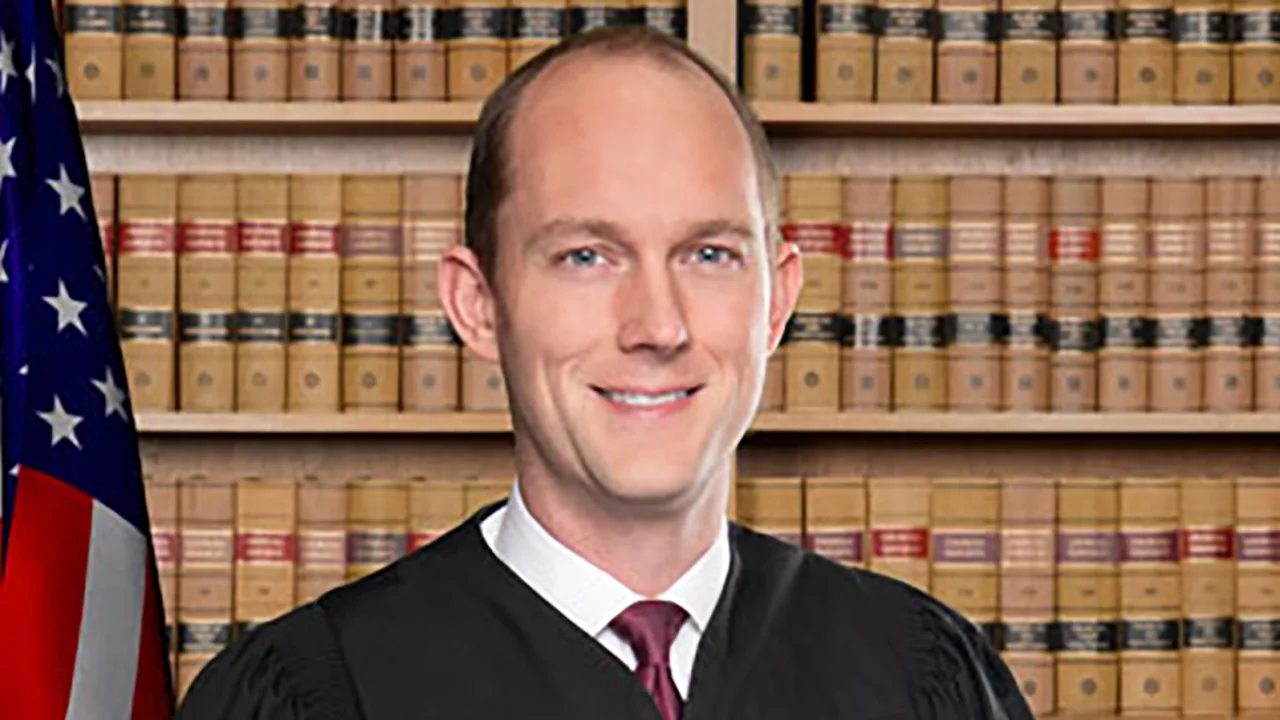
Courtesy of Superior Court of Fulton County
The first televised hearing in the Georgia case against former President Donald Trump and 18 others accused of interfering in the 2020 presidential election began Wednesday in Fulton County.
Most federal courts prohibit photos and audio and video recording inside the courtroom, but Fulton County regularly records court proceedings and posts them on its YouTube channel, and Fulton County Superior Court Judge Scott McAfee said this trial would be no different.
The press is also allowed to bring computers and cell phones into the courtroom, as long as they are not used to record the proceedings, McAfee said.
The proceedings on Wednesday centered on setting a timeline for the upcoming trial, as well as motions from pro-Trump lawyer Kenneth Chesebro and former Trump campaign lawyer Sidney Powell to separate their cases from the other co-defendants.
McAfee said it “seems a bit unrealistic” that the trial could be held for all 19 defendants in October. Powell and Chesebro, meanwhile, were hoping to speed up their trails by separating them from the pack, but their motions were denied.
Trump was indicted by a Fulton County grand jury along with 18 others on 13 felony charges including racketeering under the Racketeer Influenced and Corrupt Organizations, or RICO, Act, which is normally associated with mobsters.
The grand jury accused Trump of “knowingly, willfully and unlawfully” making false statements on a call in which he “unlawfully” solicited Georgia Secretary of State Brad Raffensperger to help him change Georgia’s results in the 2020 election.
The 100-page indictment details other allegations, including the claim that one of Trump’s lawyers attempted to tamper with voting machines and steal data from a voting machine company.
Other defendants include Trump’s then-Chief of Staff Mark Meadows, his former personal attorney, Rudy Giuliani, former Justice Department official Jeffrey Clark, and lawyers who allegedly strategized overturning the results, including Powell, Chesebro and John Eastman.
“The indictment alleges that rather than abide by Georgia’s legal process for election challenges, the defendants engaged in a criminal racketeering enterprise to overturn Georgia’s presidential election result,” Fulton County District Attorney Fani Willis said at a news conference announcing the indictment.
All 19 defendants — including Powell and Chesebro — have pleaded not guilty.
“The rush of these proceedings should raise an eyebrow to all of us,” said Diane Canada, author of “Lady Up & Don’t Quit” and founder of the Lady Up America movement.
“Trying to hold a trial for 19 people next month with hardly any notice, much less adequate preparatory time… I mean, where’s the fire?” Canada said.
“It will be interesting to see how this plays out in front of a camera in the courtroom. As these cameras are likely intended to make a spectacle of Trump and his fellow accused, they could end up being the very thing that vindicates them all in the court of public opinion,” Canada said.
Rep. Adam Schiff (D-Calif.) and 37 other Democrats sent a letter earlier this month to Judge Roslynn Mauskopf, director of the Administrative Office of the United States Courts, to request that Trump’s criminal trials be televised.
“If the public is to fully accept the outcome, it will be vitally important for it to witness, as directly as possible, how the trials are conducted, the strength of the evidence adduced and the credibility of witnesses,” the letter read.
“Cameras in the courtroom is a terrible idea and will allow Donald Trump and his co-defendants to make a circus of things,” said attorney and law lecturer Danny Karon, who is not involved in the case.
“The controversy about cameras dates back to the [1934] Lindbergh baby kidnapping trial, and the grandstanding cameras evoked. Well, the more things change, the more they stay the same, and we can expect an unprecedented level of grandstanding here, especially from Trump,” Karon said.
“No net good comes from allowing cell phones and cameras into Trump’s courtroom. For decades, placing cameras in the courtroom has stirred controversy, and this concern is only amplified with the advent of cell phones. But these technologies won’t advance justice; they’ll instead cause distraction, dissent, and perhaps violence,” Karon said.
TMX contributed to this article.
More From Politically+
-


More – Killers and free speech shouted by protesters outside…
-


The Saratoga Hotel just blew up! There is a primary…
-
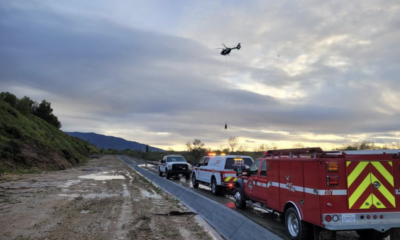

Horse Trapped In California River For Nearly 24 Hours Airlifted…
-
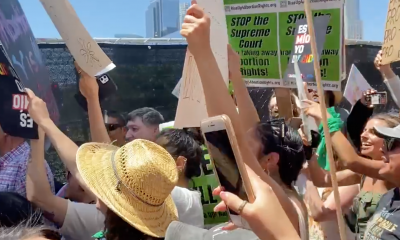

Confrontation at Los Angeles Abortion Rights Protest
-
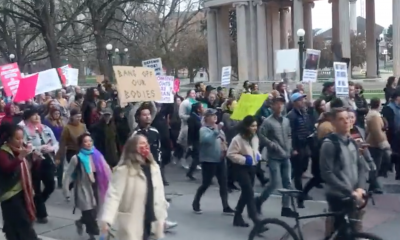

Pro Roe V. Wade Demonstrators in Denver
-
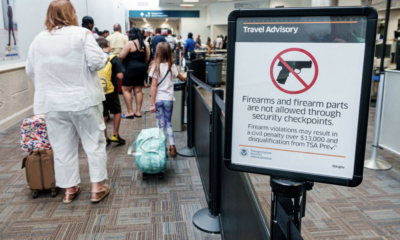

TSA Intercepted 1,503 Firearms At Airports In The First Quarter…
-
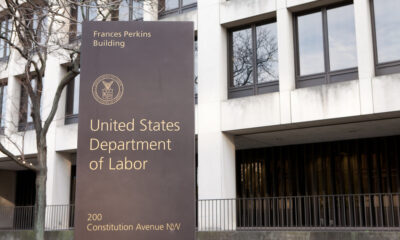

Tennessee Manufacturer Ordered To Pay Over $1.5 Million For Child…
-


Lawyer: Tucker Carlson’s Termination Likely Settled Under ‘Sophisticated’ Contract
-


Protesters Gather in Houston, TX In Anti-NRA Demonstration After Deadly…
-
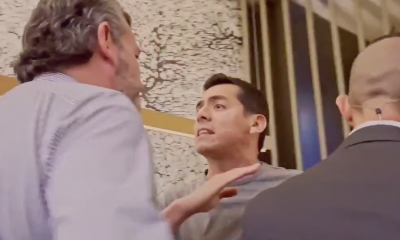

Democratic Activist Confronts Senator Ted Cruz at a Sushi Restaurant
-


Die-in staged by abortion rights activists in front of San…
-


DOJ Seeks Forfeit Of 2 Luxury NYC Apartments Of Former…
